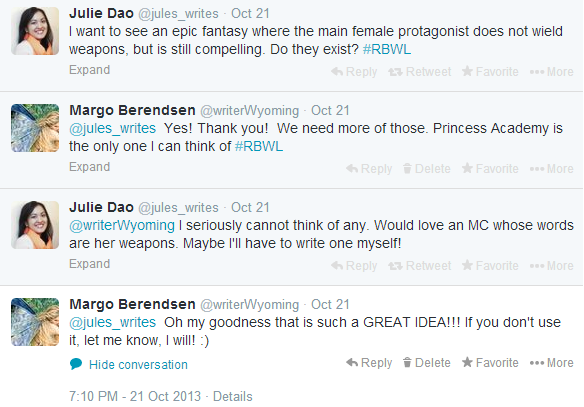Theme is how the story relates to reality and life in general; it can present a view of an issue, or better yet, it can present multiple views of an issue, and consequences of choices related to that issue. One of my favorite books, The Archived by Victoria Schwab, explores what it means to live a lie, coupled with what it would mean to have access to the living memories of dead loved ones. (The sequel, The Unbound, comes out today!)
Another favorite is The Help, by Katheryn Stockett, which gives three perspectives on racism from three different main characters. These Broken Stars, by Amie Kaufman and Meagan Spooner, has a subtle theme of having preconceived notions about other people based on their background, and the roles we force ourselves to play to be accepted by others.
The story has to pierce the heart of the reader. A great story is always relevant to life on a personal level… for the reader. (Larry Brooks: Theme Simplified)
The path toward thematic richness in a story isn’t persuasion, but the exposure of consequences that tweak the emotions. That gets the reader thinking and feeling. (Larry Brooks: The Thing About Theme)
I believe storytelling is one of the most useful tools we have for achieving meaning (Ursula K. LeGuin: A message on messages)From the writing side, about how to write theme, I found this comment interesting:
I think it was Ray Bradbury who said something along the lines of, You can’t consciously write the theme, it has to develop on an unconscious level or it feels forced.I've found that's true in my writing. I can't start out with a theme that's important to me and write a story about. Instead I write a story about an idea, image, or scene that resonates with me, and as the story expands, some themes sneak in (and some sneak back out again) and it isn't until the rough draft is nearly done that I even start to recognize the theme (or that it's missing).
You don’t need to solve the issue for humanity, or recruit anyone to a point of view… just explore it, allow your characters to navigate the core story from within this microcosm and all its nuances and influences.Larry Brooks' blog, StoryFix, is a wonderful source of information about theme (and concept, that's a whole other curiosity I might muse on next week). Here's something else from his blog that helped me understand theme better:
Think of a song lyric. Something serious and weighty. The first one that pops into your head. Got one? Got several? It’s important to notice that the lyric that came to mind has remained with you over time. Maybe a long time. Which means there’s something about it that resonates with you. Your lyric is perhaps the gateway for a story that needs to be told. And because it was you who remembered it, perhaps you might be the ideal writer to tell it (Larry Brooks: Finding and leading with theme)
So even before I was finished reading this paragraph the first time, a song lyric was in my head, and the theme that once had resonated so strongly to me... and still does. It's the lyrics from Shimmer by Shawn Mullins, and it goes to a story I rough-drafted back in 2008/2009 and have since put on the back-burner to simmer some more (Raining Toward Heaven). Don't know if I'm ready to start working on this again, but I am definitely making note here of how the theme (found in those lyrics) I need to explore more in that story.
What book has a theme that really stuck with you?





















.jpg)





